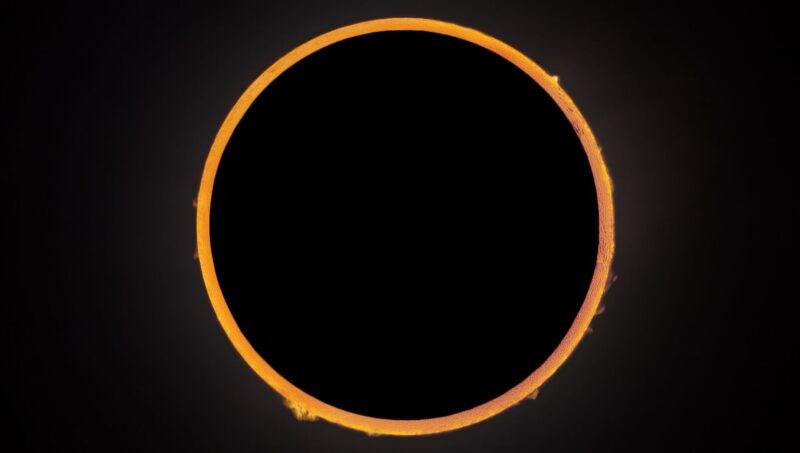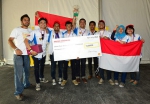RAKATA ITB: Develop The Pure Ethanol Fueled Car
By Ahmad Furqan Hala
Editor Ahmad Furqan Hala

 BANDUNG, itb.ac.id - Currently the need of alternative fuels in the world is increasing. This is due to the increasing of demand for fuel and the depletion of existed fossil fuel reserves. Based on this, organized the Shell Eco Marathon 2013, which emphasizes the use of alternative fuels such as bioethanol, fuel gas, hydrogen, electricity and other alternative energy sources. One of the participants of this year competition is Rakata team from ITB.
BANDUNG, itb.ac.id - Currently the need of alternative fuels in the world is increasing. This is due to the increasing of demand for fuel and the depletion of existed fossil fuel reserves. Based on this, organized the Shell Eco Marathon 2013, which emphasizes the use of alternative fuels such as bioethanol, fuel gas, hydrogen, electricity and other alternative energy sources. One of the participants of this year competition is Rakata team from ITB.Rakata is one of the team that has participated since 2011 in Shell Eco Marathon competition which is held every year. This annual competition is divided into two categories, first is prototype category that focus on racing and the second one is adapt the urban city car model. For this year, Rakata will compete in the prototype category. The competition itself will be held on 4th-7th July 2013 at the Sepang circuit, Malaysia.
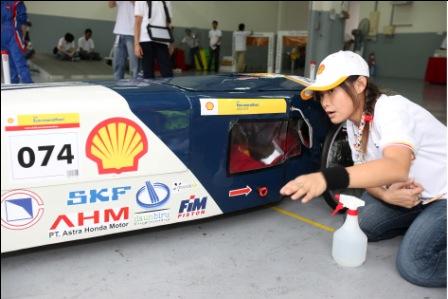 The mechanism of Shell Eco Marathon competition 2013 is as follows. Before the race held, there is a technical inspection first. Each participant must follow the technical inspection before following the race. Teams that are not qualified at this stage can not join the race. Then, each team will be given five times opportunity to take four rounds of the circuit for less than 23 minutes. If the time to do four rounds exceeds 23 minutes, the team will be disqualified for that round. After that the maximum fuel that is used to cover the four rounds will be measured and will be converted into units of kilometers per liter. The team with the greatest achievement would be a champion on-track.
The mechanism of Shell Eco Marathon competition 2013 is as follows. Before the race held, there is a technical inspection first. Each participant must follow the technical inspection before following the race. Teams that are not qualified at this stage can not join the race. Then, each team will be given five times opportunity to take four rounds of the circuit for less than 23 minutes. If the time to do four rounds exceeds 23 minutes, the team will be disqualified for that round. After that the maximum fuel that is used to cover the four rounds will be measured and will be converted into units of kilometers per liter. The team with the greatest achievement would be a champion on-track.
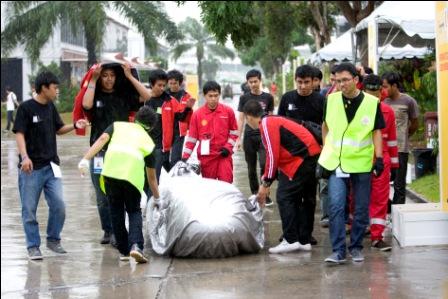 The car prototype that will be used by Rakata is car with three wheels. While the fuel used is pure ethanol. Machine used was a regular motorcycle engine. However, because pure ethanol fuel used has a high octane rating (around 105-110) than usual premium fuel, so the modifications of the engine will be needed. Value compression in the engine must be higher than the general engine. The weight of the engine had to be reduced and the transmission system should be replaced using a single transmission system (with third gear as the main gear, while the first gear and the fourth gear should be discarded). In addition, the fuel control system called ECU (Engine Control Unit) is a system designed by Rakata. The addition of this manual ECU because the engine control system that was produced by plant can not be modified directly.
The car prototype that will be used by Rakata is car with three wheels. While the fuel used is pure ethanol. Machine used was a regular motorcycle engine. However, because pure ethanol fuel used has a high octane rating (around 105-110) than usual premium fuel, so the modifications of the engine will be needed. Value compression in the engine must be higher than the general engine. The weight of the engine had to be reduced and the transmission system should be replaced using a single transmission system (with third gear as the main gear, while the first gear and the fourth gear should be discarded). In addition, the fuel control system called ECU (Engine Control Unit) is a system designed by Rakata. The addition of this manual ECU because the engine control system that was produced by plant can not be modified directly.
Ethanol As Alternative Fuel
Ethanol is one of the short-chain hydrocarbons that commonly used as fuel. However, the use of pure ethanol as fuel is still limited. Generally, ethanol, butanol and any other type of alcohol was used as an additive to increase the octane value of the fuel. One of the country that the use ethanol as fuel already is Brazil.
Ethanol used for fuel is generally derived from fermented processed sugar cane (molasses). Fermentation process with a biological agent has added value in the field of production compared to fossil fuels, because the energy required less processing. In addition, the combustion process of ethanol into energy, carbon dioxide levels of exhaust gas is also less produced, so it can reduce greenhouse gas agents in the atmosphere.
Support Results and Cooperation with Various Parties


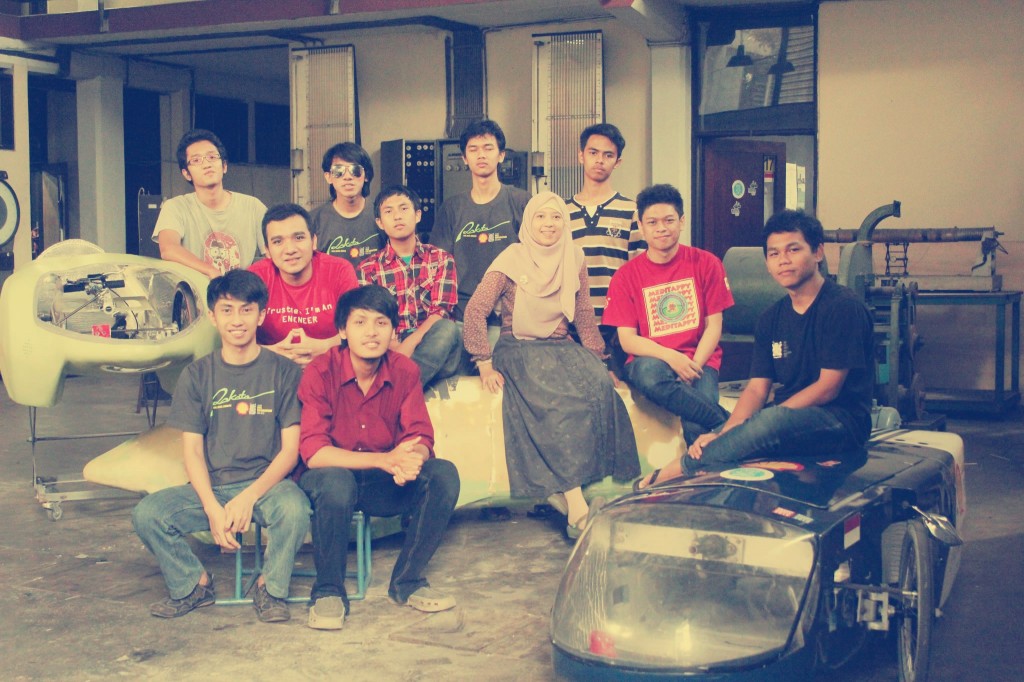 Rakata team is a combination of students from some courses at ITB, such as Mechanical Engineering, Aeronautics and Astronautics, Materials Engineering, Engineering Management. Presence of team members who have background in management because the team needs to manage their documents neatly and to do time management. In addition, the team is also fully supported by expert lecturers. Every week they always do a progress report that submitted by the team manager. In addition, there is always a visit to the workshop each month for monitoring by the lecturers.
Rakata team is a combination of students from some courses at ITB, such as Mechanical Engineering, Aeronautics and Astronautics, Materials Engineering, Engineering Management. Presence of team members who have background in management because the team needs to manage their documents neatly and to do time management. In addition, the team is also fully supported by expert lecturers. Every week they always do a progress report that submitted by the team manager. In addition, there is always a visit to the workshop each month for monitoring by the lecturers.
Besides the cooperation and support from the campus, the making of Rakata prototype is also sponsored by several companies in the country. For engine parts, Astra Honda Motor (AHM) gives the engine as prototype machine. Then for the manufacture of car bodies, PT Indonesian Aerospace (PT. DI) help them in the manufacturing process and material. In the process of ECU making, Rakata was working with Blue Leaves Engineering (Daun Biru Engineering). The team also received funds from ITB and Garuda Indonesia.
When asked about expectations, Ikhsan Irfansyah (Mechanical Engineering 2009) says, "For on-track awards, our expectations could reach 600 km / L, twice that of last year's achievement that was only 291 km / L. Furthermore, we also target award of off-track awards, such as best team spirits, best innovation or some other off-track awards.
"We also hope that the alternative technology that we have developed can be applied to the public directly, in the case of ethanol combustion technology, ignition technology, or its ECU control. And for the vehicle prototype, because this is only a prototype and used to race, there is no particular expectation that this vehicle will be used for daily use, "said Ikhsan, as the team manager of Rakata ITB.

.jpg)
.jpg)

